Ethnic diversity in pro cycling - Why is 95% of the WorldTour White?
Cyclingnews explores the drivers behind cycling’s lack of diversity and what can be done to remove barriers for riders of colour
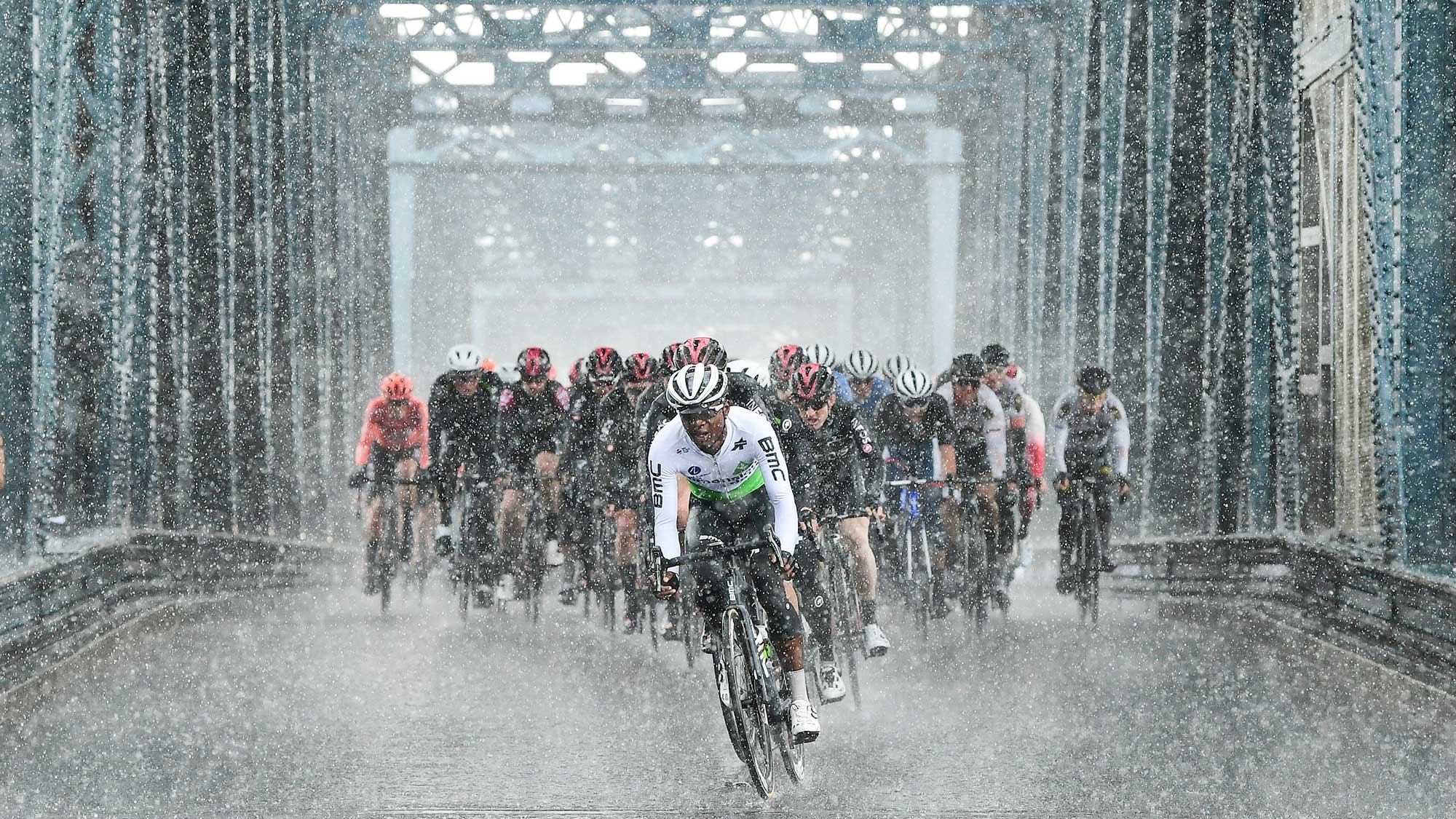
It's the first day of July 2024 in the historic Italian city of Turin. The air is thick with the significance of the moment as an Eritrean cyclist stands on the top step of the podium.
After roaring to victory on stage three of the 2024 Tour de France, Biniam Girmay (Intermarché-Wanty) stands alone as the first Black rider to win a stage in the great race's 121-year history, but also, in juxtaposition, as the only Black rider in the race.
Girmay’s three Tour de France stage victories and green jersey triumph have raised awareness of cycling’s euro-centricity, arousing calls for more investment to give opportunities to riders from around the world. However, there is also a dearth of riders of colour from Europe and other Western countries at the top level.
In 2024, around 5% of the men’s WorldTour peloton were people of colour - defined as someone who is non-White or non-European. In the women’s WorldTour, riders of colour made up 2% of the top division.
Professional cycling is a sport deeply influenced by its Western European heritage, but that heritage has also set in stone the ethnic makeup of the WorldTour peloton today.
The contrast with other sports is striking. In football’s English Premier League, around half of the players contracted to teams are people of colour, according to a report by the Statista Research Department. Ethnicity data is not allowed to be recorded in sports across most European countries, but it’s clear that cycling lags behind almost every other major sport in its ethnic diversity.
Sign up to the Musette - our subscriber-only newsletter
Much of Europe, and other Western nations, have ethnically diverse populations, but very few can count any riders of colour among the men’s or women’s WorldTours.
The UCI have long held ambitions of increasing diversity in cycling, as they commit to on their website. However, the statistics show the hard truth: pro cycling’s WorldTour is harder to access for people of colour.
“Everyone should have access”
In 2022, Ayesha McGowan made history as the first African-American person to compete in the WorldTour. She raced for two seasons for the Dutch Liv Racing-TeqFind team as one of only a few women of colour in the WorldTour bunch. She thinks that cycling could benefit from more ethnic diversity in more ways than one.
“If I'm being honest, I don't think people really care that there's a lack of diversity,” McGowan tells Cyclingnews.
“Cycling, it's a fun sport. It's a thing that I feel like everyone should have access to and be a part of... I wanted other people like me to be able to have fun like that.”
“I think [greater diversity] would also make it a more dynamic thing to watch. I think when you look at other sports a lot of the big talents are also diverse people and cycling doesn't have as much of that. Just look at the phenomenon that is Biniam [Girmay],” McGowan added.
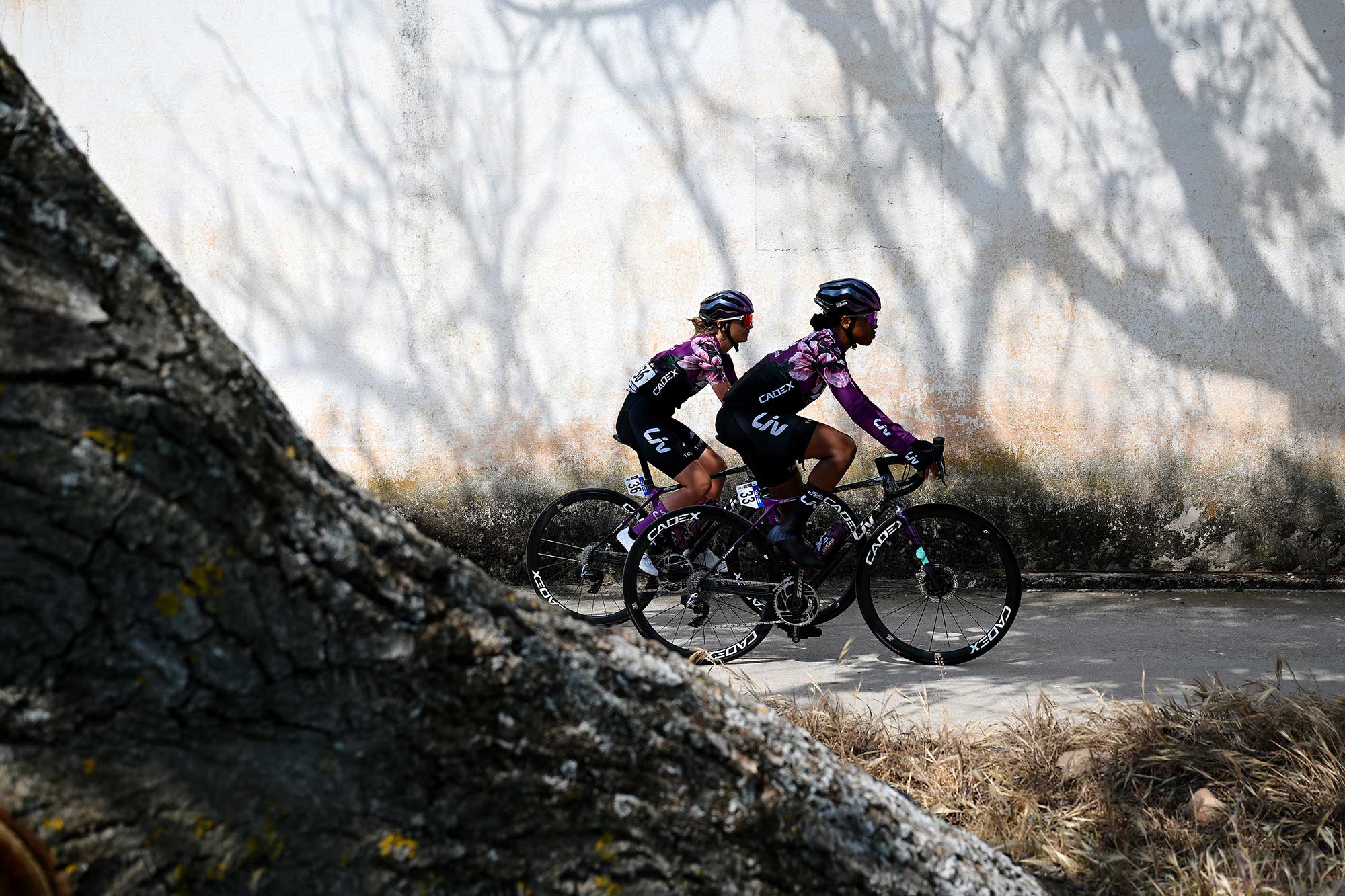
Girmay fever rippled through the cycling world and beyond in the summer of 2024 due to his Tour de France success, and the benefits have been felt by Girmay’s Belgian team.
“For sure Biniam’s success has a great impact on the visibility of our team,” Intermarché-Wanty Communications Manager Sarah Ingelbrecht says.
Girmay’s profile has single-handedly increased the team’s reach on social media and other media coverage. “After his successful periods (2021 season & 2024 Tour de France) we also had 5-10x more journalists attending our media days and press conferences,” Ingelbrecht added.
Eritrean Merhawi Kudus has spent most of his career so far in the WorldTour. He thinks Girmay’s success may have changed the game when it comes to diversity in cycling.
‘Biniam, he showed his potential. And now if we get the opportunity, it's not about the colour, you know, it's only about the potential,” Kudus says over the phone from a training camp with his new team, Burgos BH.
“To be honest, what he's done is quite surprising and is really unbelievable,” the 30-year-old added.
The sense emanating from Girmay’s triumphal summer is that cycling’s era of diversity is finally on its way, and that teams and the sport as a whole would likely benefit because of it.
In reality, the sport is actually becoming less diverse. The percentage of riders in the WorldTour from diverse backgrounds has actually declined slightly during the last few years, with no sign of reversal.
The barriers that have kept cycling as a White, European sport in the overwhelming majority for over a century remain, and they may be holding the sport back.
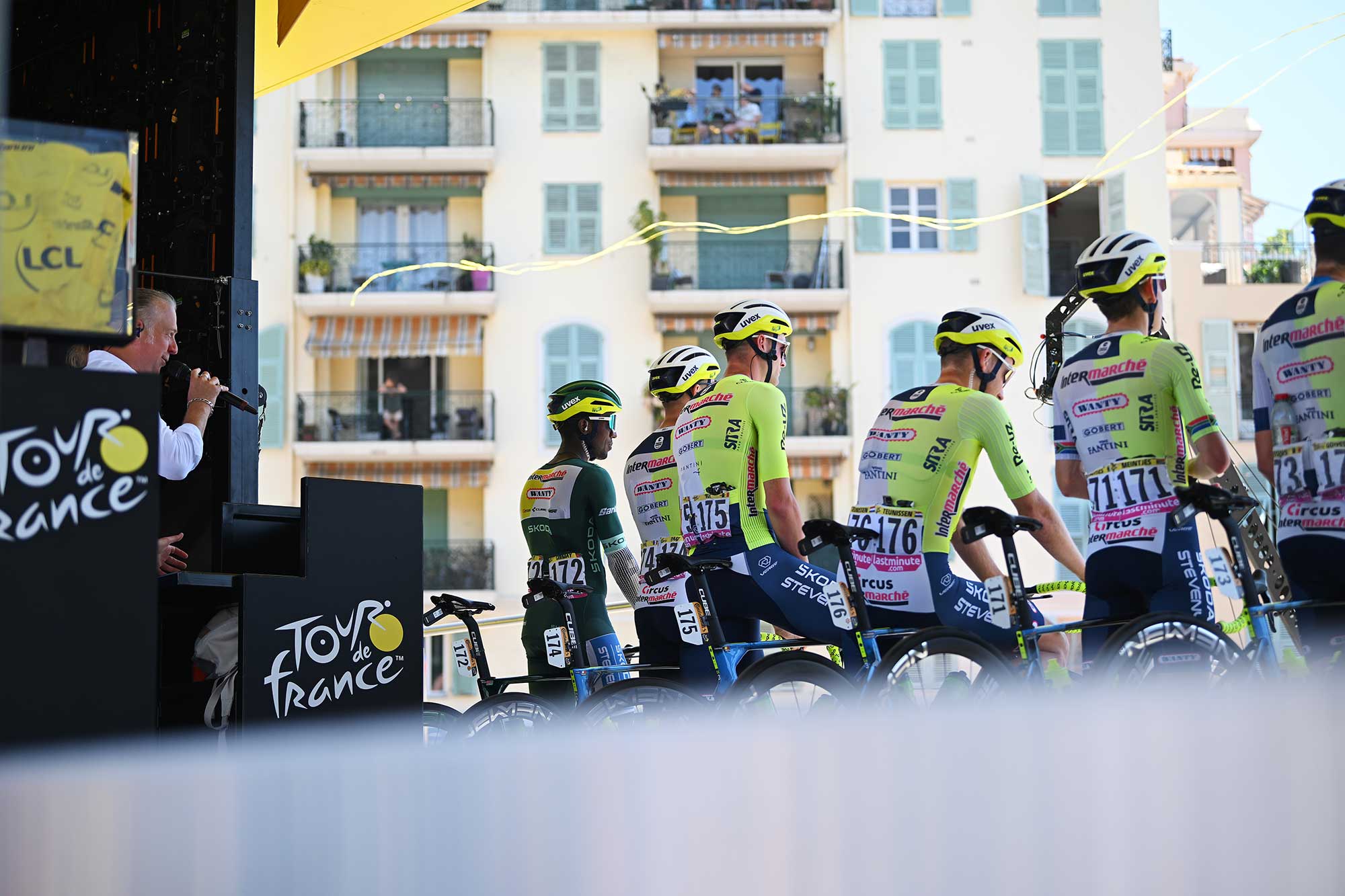
“It takes so much energy”
“If you ask why there are no WorldTour riders [from diverse backgrounds], then that question is really easy to answer, because there are no riders in [the] continental level,” says Adam Szabo, who has run the Canyon-SRAM Generation team for the last three seasons.
The theory is a sound one. If the WorldTour is ever to be truly ethnically diverse, the levels below it must first be diverse. A pathway to the WorldTour for riders of all backgrounds is what is needed, something which Canyon-SRAM Generation, a development team for the WorldTour squad, is hoping to create.
The team aims to enable riders from under-represented backgrounds to progress in the sport, with the hope that they may one day join the Canyon-SRAM WorldTour team. It has featured racers from Rwanda, Jamaica, Ethiopia and elsewhere during its first three seasons. “We create a kind of entry-level,” Szabo explains, “potentially then they can move on to the higher level of cycling.”
Teams hold much of the power in deciding who does and doesn’t make it to the WorldTour. Selection processes driven by the need for UCI points, the ease of using established performance pathways and the well-known headwinds already experienced by most teams don’t help the push for diversity, according to McGowan.
“I feel like especially in the women's peloton, everyone's trying to survive. There's so many issues within women's cycling that need to be fixed that people are like: it's a problem for the people that it affects but not a problem for anyone else,” she says.
Most racers coming from established European junior channels arrive at the elite level like out-of-the-box professionals. From a young age, many teenagers from Belgium or France are already behaving like fully-fledged bike racers. They’re eating right, training right and getting experience in the right kinds of race scenarios.
Racers from alternative backgrounds, however, come with a plethora of different challenges, depending on their contexts. Put bluntly, it can be more hassle to sign and develop a rider from an unestablished background than it is to pluck a rider from the Italian or Belgian junior system. This is especially true for riders who want to make it as professionals from Africa, Asia and elsewhere. Teams are being put off from signing diverse riders due to the extra workload and financial burden.
Visas are the biggest initial hurdle for these riders, with immigration systems fighting against the ambition of riders looking to make the move to Europe.
“First and foremost is the visa issue,” says Szabo, who adds that he has had to become something of an expert on the topic over the past few seasons.
“Looking into more long-term visas and even residency permits are really challenging because the European [countries] don't want to have other people coming into the country.”
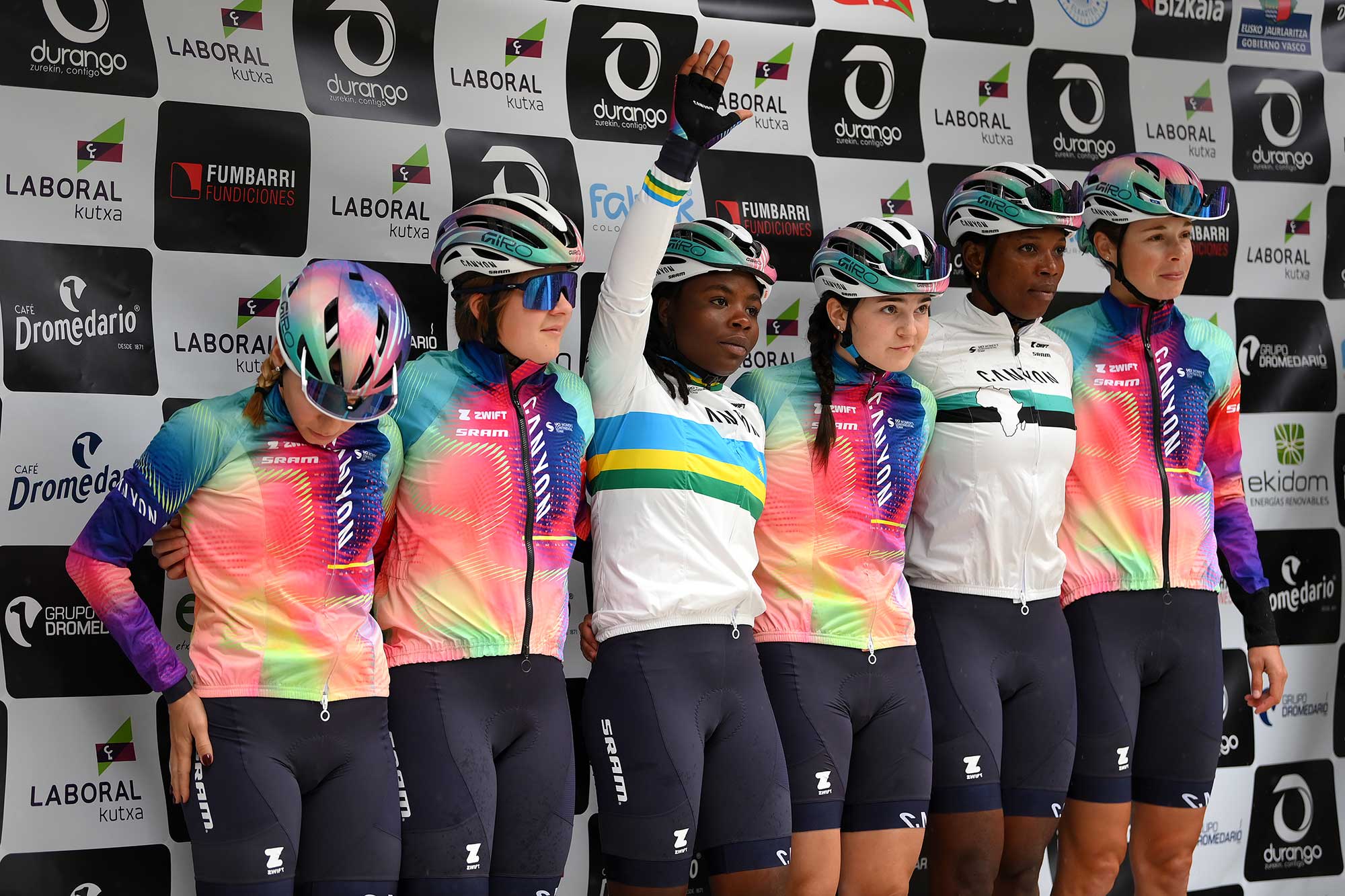
Szabo would like to see the UCI be more active in lobbying for rider visas with national governments. He also calls for a simplification of the bureaucracy within national federations, saying that these measures would make signing riders from nations like these more appealing to other teams by reducing the hassle.
“The bureaucracy is so complicated… the biggest help for me personally would be to make those administrative and bureaucratic tasks to get riders to Europe easier. And if it will be easier, then I'm 100% sure that more teams will be open to take riders from Africa or from those emerging countries. The talents are there, they are just missing the opportunity to get to Europe... I'm 100% sure about this.”
“I understand why teams are losing appetite [to sign riders from diverse backgrounds] because the amount of energy and effort purely just to let those riders come and be here is so much,” he adds.
Riders who are far away from home, those less entrenched in cycling practices or riders who may simply feel like they stick out from others need dedicated support from teams, who have often struggled with the capacity and know-how to provide it.
“I think there's elements to being different than everyone else that get left out,” says McGowan. “When you don't have that familial and cultural support, that element of things, I think it's ignored a lot.”
“[Teams] have to make sure that [they’re] actually supporting those people and developing those riders because I feel like a lot of the diverse faces are retiring or being pushed out of the sport or not lasting very long. I think people need to figure out why.”
Racism in cycling
Racial discrimination in many different forms is prevalent within society, and every sport exists as a microcosm of society. Whatever attitudes and behaviours occur in the world at large will always seep through into the culture of every sport. Professional cycling is no different - but is it fair to say that cycling’s lack of diversity is because of racism?
Cycling has had its own issues with overt racism in the recent past, the most recent high-profile case coming at the end of the 2023 season, when Intermarché-Wanty riders Madis Mihkels and Gerben Thijssen were sent home from the Tour of Guangxi due to an offensive gesture posted on social media.
Other instances include the 2017 suspension of Gianni Moscon after he racially abused Black French rider Kevin Reza during the Tour de Romandie. In 2020, after Reza had finished the Tour de France as the edition’s only Black rider, he told Sky Sports News at the time: “I've known racism since I was young…Unfortunately, it is painful and degrading. But we are used to living like that."
For a time, Reza became a spokesperson for anti-racism in cycling, calling on the UCI to introduce bans equal to those for doping for riders found guilty of racial discrimination.
“As far as if people were welcoming I feel like it was a mixed bag,” McGowan said of her own experience. “I think some people were really curious and welcoming and some people were less so…I didn't experience much overt unwelcome behaviour from people within the WorldTour experience that I had.”
Racism in society is not only present in overt gestures but also in covert systems and processes, such as how employment decisions are made.
One Asian former WorldTour cyclist, who did not wish to be named, told Cyclingnews that they felt looked over as a rider from a less-represented background.
"I feel they look down on Asian people. But also I feel, not only [in] normal life, but also I feel it in cycling...sometimes I feel it," they said.
The rider had changed teams several times during their career and felt as though they had not been treated as an equal on the teams they had been a part of. They felt as though they were “always the first one” to be told that their contract wouldn’t be renewed, with an equally gifted European rider always given their spot.
“Even though I did good work in the season...they don't want me. It's [the] reason why I change a lot the team [I'm in]," they said.
This rider’s experience is one shared by Kudus: “My manager, always he told me if they try to compare between a European and me, it's hard to choose me, with a lot of conditions except the performance. So I would say they are scared, maybe.”
“We need to [have an] open conversation. Even if it's sensitive to talk about racism. People, for me, they are scared to talk about it,” adds Kudus, who also says that he has never overtly experienced racism during his time as a professional.
It’s impossible to definitively say the extent to which racism, overt or covert, is playing a hand in pro cycling’s lack of diversity. However, it may be present as an unseen limiting factor within team structures and systems, as well as the wider cycling community.
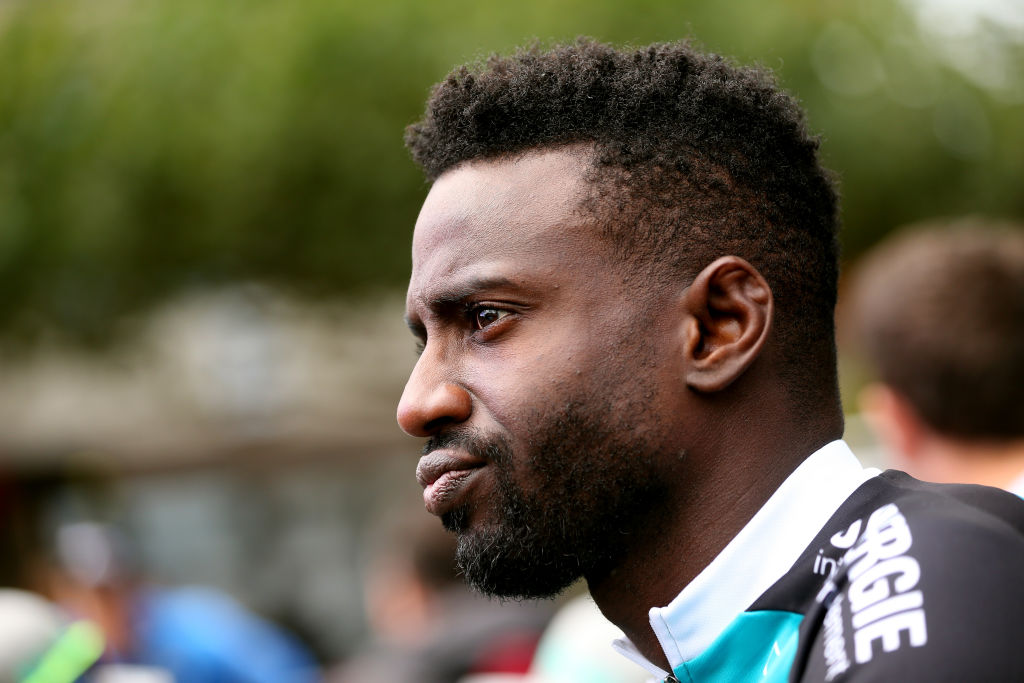
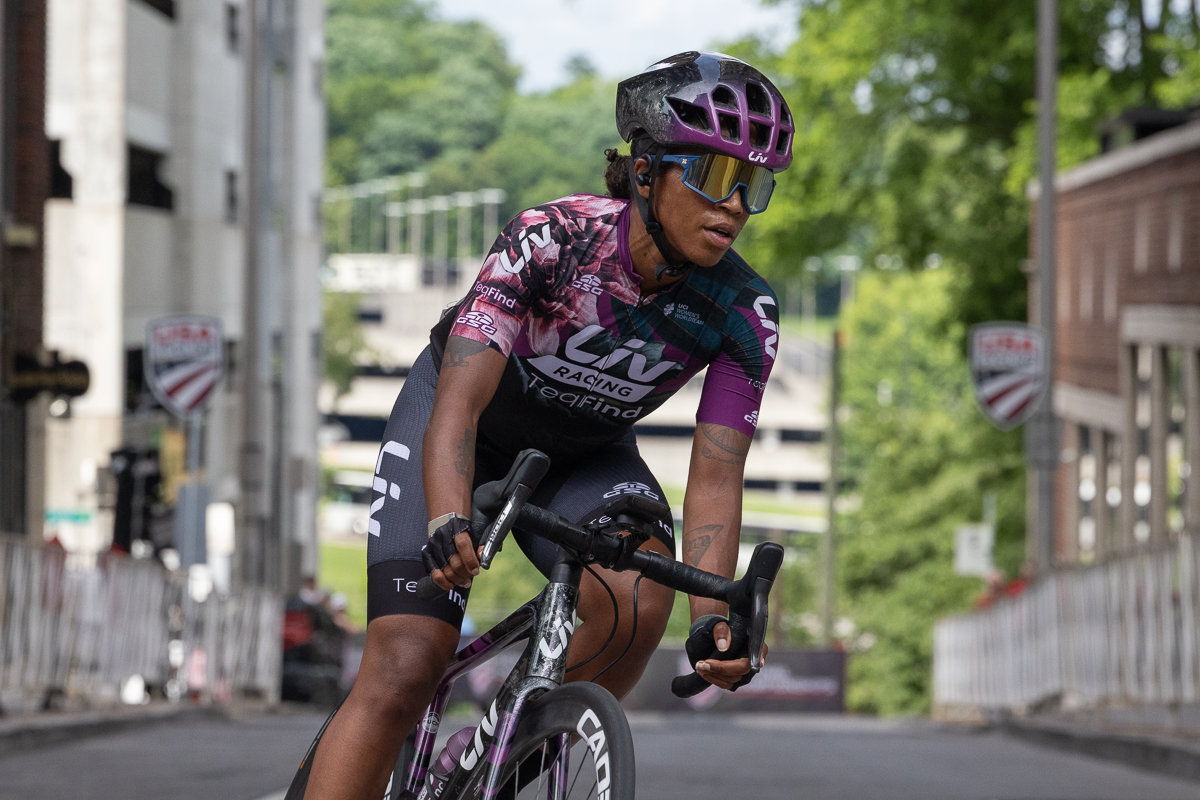
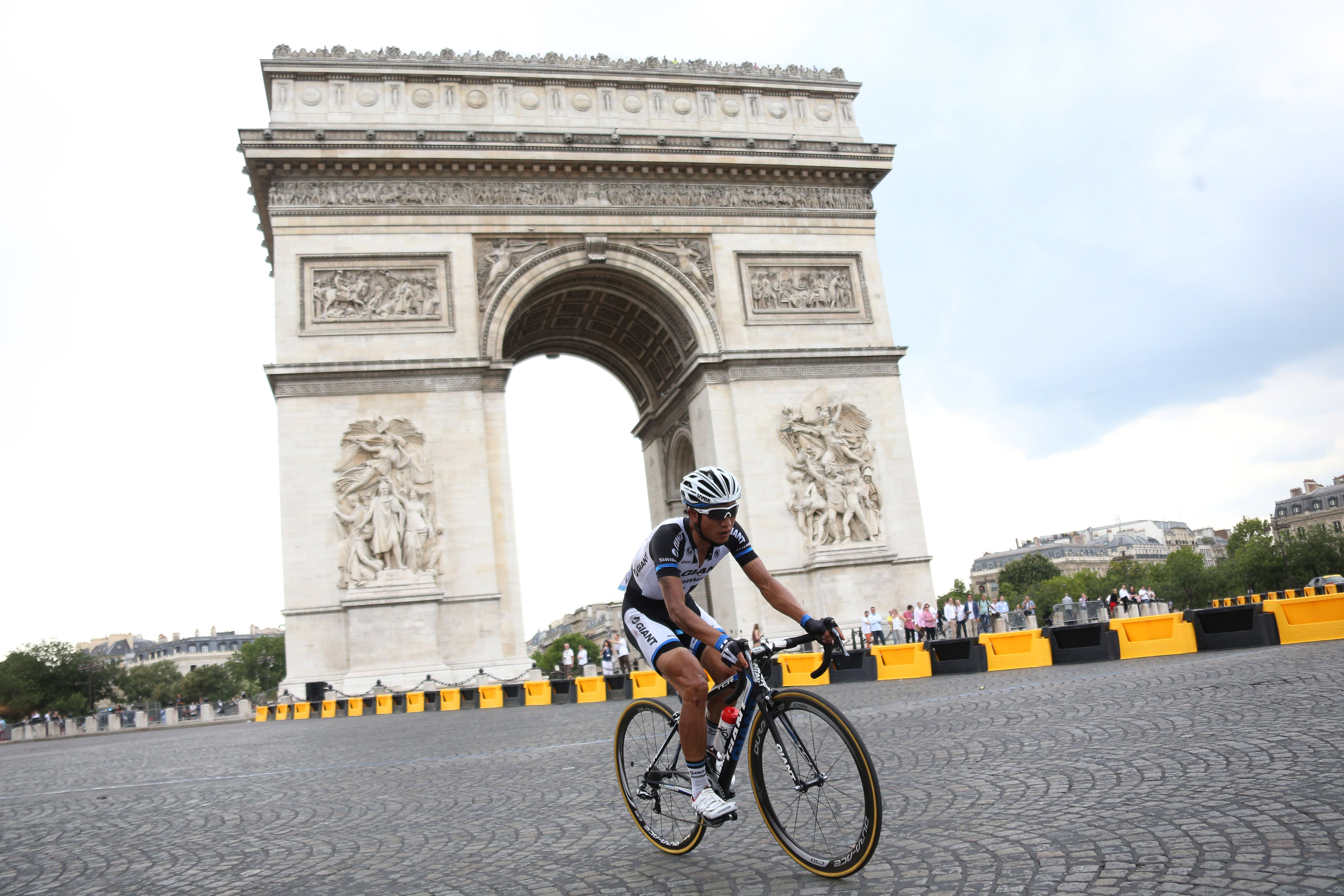
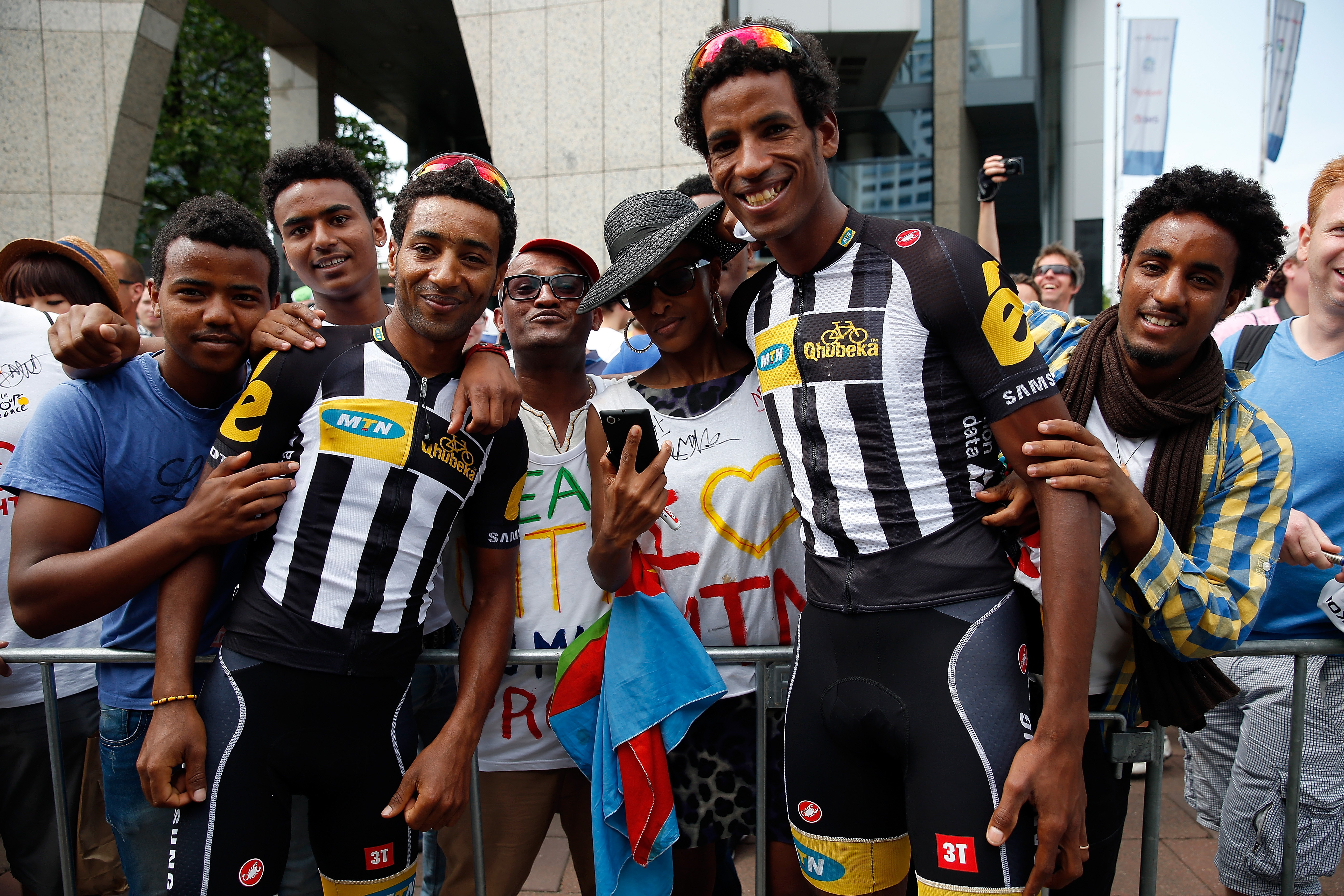
Some of
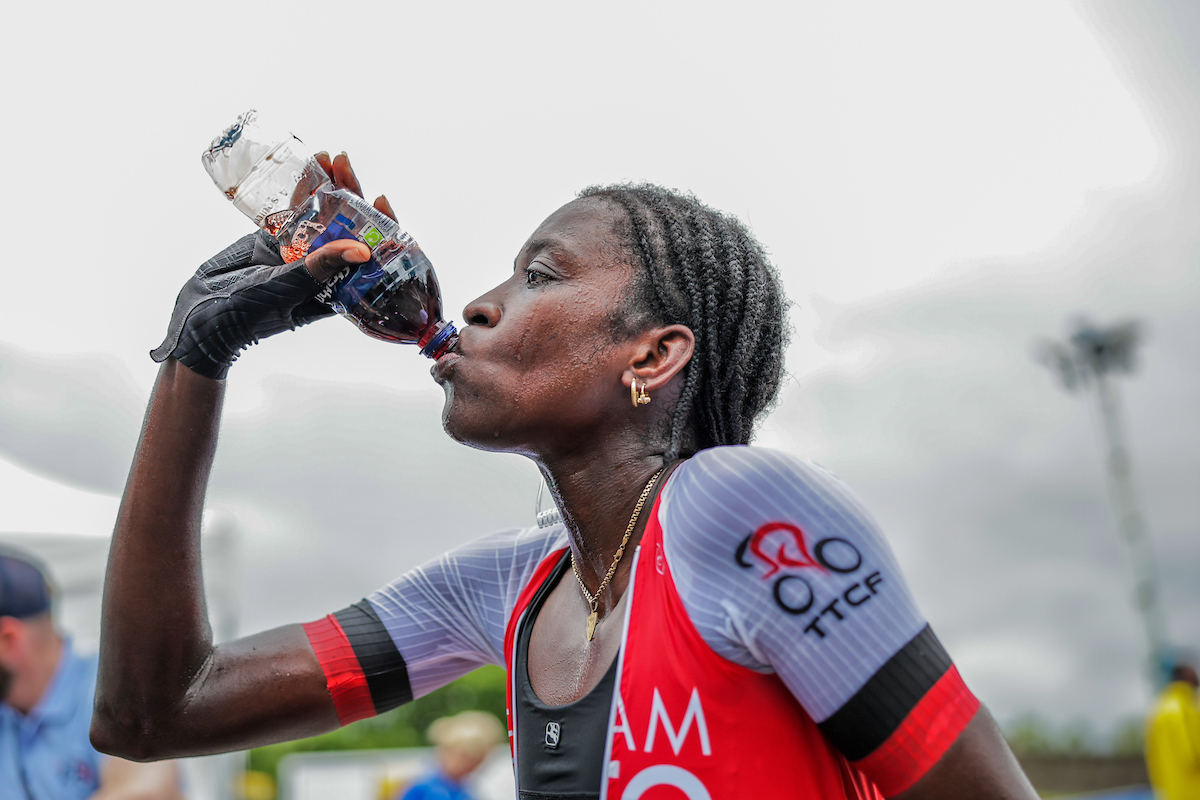
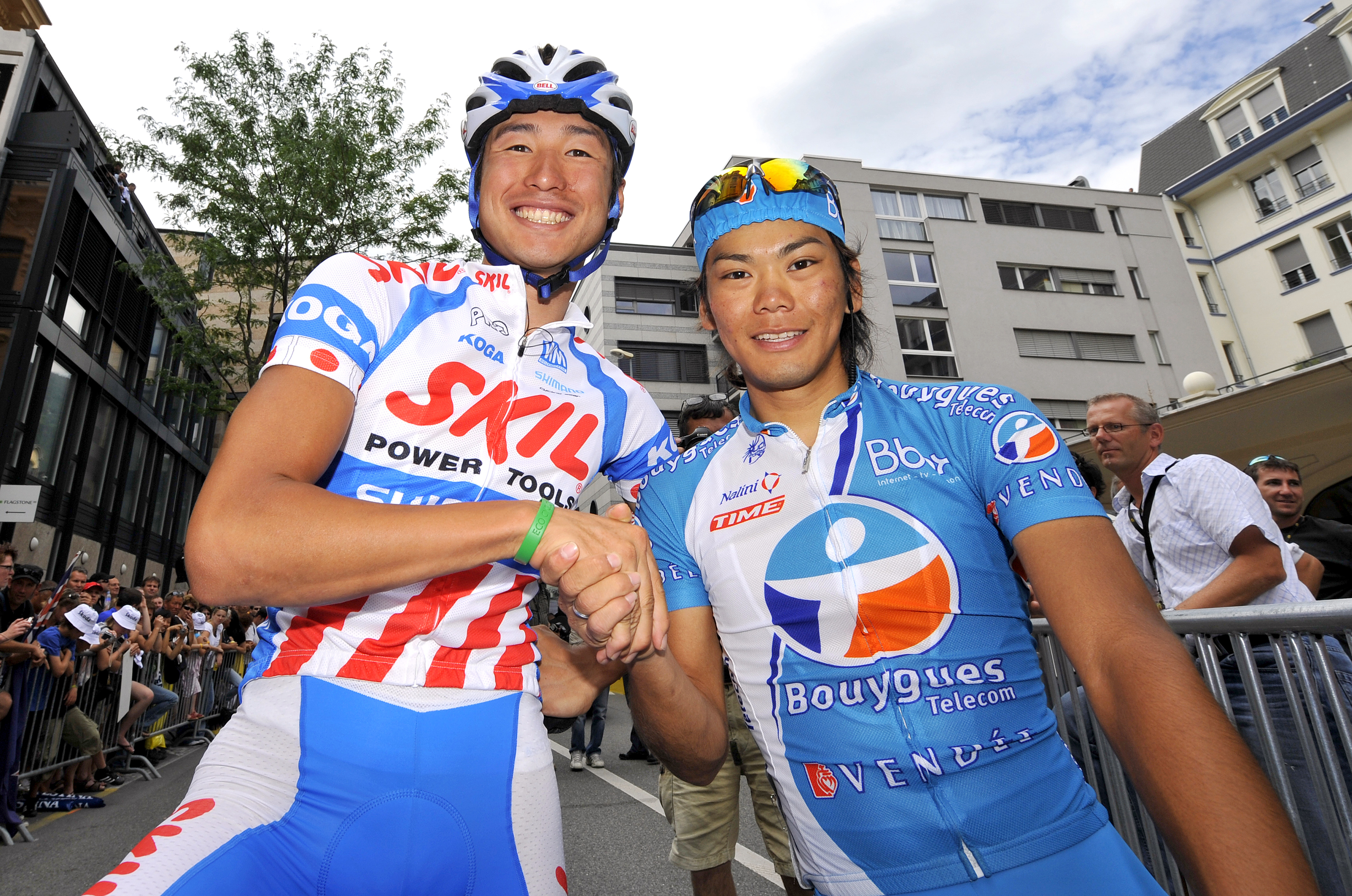
Creating a pathway
The drivers behind cycling’s lack of diversity exist at various stages of the pathway from the lowest levels of competitive cycling to the WorldTour. If the sport is to become more ethnically diverse, solutions must be found at each point.
One key element is that there is a need to see more riders of colour at the lower levels of the sport. This is especially true in Europe and Western countries - domestic racing scenes thrive throughout much of Africa and Asia, and it’s getting to Europe which is the challenge.
The more who participate at those lower levels, the more that should filter through the ranks as the system allows. This is McGowan’s mission, with a particular focus on increasing the participation of women of colour in the domestic scene in the USA.
Over the last four years, McGowan has been running Thee Abundance Project, which gives women of colour the opportunity to try bike racing, often for the first time. In the last four years, Thee Abundance Project has worked with around 80 riders, seeing several riders of colour who started as beginners progress to become level two racers in the American system - where level five is for beginners, and one is the elites.
“It's a numbers game,” McGowan says, “you’ve got to get people into the sport in order to get them to the top levels.”
“The races are starting to look a little bit more diverse, which is really nice. We don't have very many at the super top level yet, but we're getting there and that's been really exciting.”
“We're just working on giving these women an opportunity to invest in the sport, invest in themselves and decide on their own if that's something that they want to do because it's not easy. Removing as many barriers as possible is always helpful.”
It’s all about the money
Removing barriers is what is needed to enable cycling to catch up to its elite sport cousins in its ethnic diversity.
Visa processes need support, bureaucracy must be lightened, teams have to become aware of the needs of their riders and of possible discrimination and the lower levels need to become accessible to more riders of colour.
All of this costs money, which flows freely in other sports, but not in cycling.
If the WorldTour is ever to become truly diverse, making the sport accessible to people of all backgrounds, the powers that be will need to invest in that vision.
If you subscribe to Cyclingnews, you should sign up for our new subscriber-only newsletter. From exclusive interviews and tech galleries to race analysis and in-depth features, the Musette means you'll never miss out on member-exclusive content. Sign up now
Dan is a freelance cycling journalist and has written for Cyclingnews since 2023 alongside other work with Cycling Weekly, Rouleur and The Herald Scotland. Dan focuses much of his work on professional cycling beyond its traditional European heartlands and writes a regular Substack called Global Peloton.